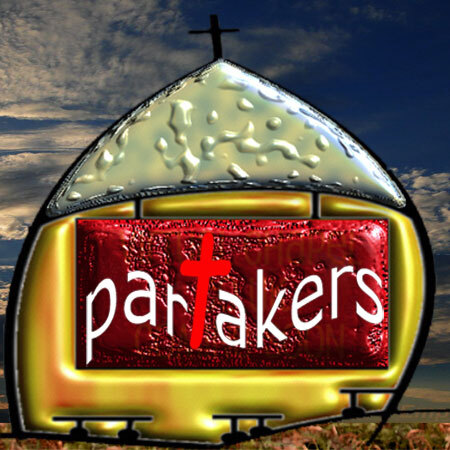
G’day and welcome to Partakers Christian Podcasts! Join us for uplifting Bible teaching, inspiring readings, heartfelt worship, powerful prayers, and fascinating church history. Whether you’re new to faith or growing deeper in your journey, we’re here to encourage and equip you. 🎧 Tune in, interact, and be inspired—wherever you are in the world.
Episodes

Thursday Oct 31, 2013
Church Moves Ahead 21
Thursday Oct 31, 2013
Thursday Oct 31, 2013

Church Moves Ahead Part 21
G’day and welcome to Partakers and our series Church Moves Ahead, where we look together at the history of the early church, and in particular its persecution. We are taking brief excerpts from an ancient book, Foxes Book of Martyrs. This excerpt is from The Eighth Persecution, Under Valerian, A.D. 257. In Africa the persecution raged with peculiar violence; many thousands received the crown of martyrdom, among whom the following were the most distinguished characters: Cyprian, bishop of Carthage, an eminent prelate, and a pious ornament of the Church. The brightness of his genius was tempered by the solidity of his judgment; and with all the accomplishments of the gentleman, he blended the virtues of a Christian. His doctrines were orthodox and pure; his language easy and elegant; and his manners graceful and winning: in fine, he was both the pious and polite preacher. In his youth he was educated in the principles of Gentilism, and having a considerable fortune, he lived in the very extravagance of splendor, and all the dignity of pomp. About the year 246, Coecilius, a Christian minister of Carthage, became the happy instrument of Cyprian's conversion: on which account, and for the great love that he always afterward bore for the author of his conversion, he was termed Coecilius Cyprian. Previous to his baptism, he studied the Scriptures with care and being struck with the beauties of the truths they contained, he determined to practise the virtues therein recommended. Subsequent to his baptism, he sold his estate, distributed the money among the poor, dressed himself in plain attire, and commenced a life of austerity. He was soon after made a presbyter; and, being greatly admired for his virtues and works, on the death of Donatus, in A.D. 248, he was almost unanimously elected bishop of Carthage. Cyprian's care not only extended over Carthage, but to Numidia and Mauritania. In all his transactions he took great care to ask the advice of his clergy, knowing that unanimity alone could be of service to the Church, this being one of his maxims, "That the bishop was in the church, and the church in the bishop; so that unity can only be preserved by a close connexion between the pastor and his flock." In A.D. 250, Cyprian was publicly proscribed by the emperor Decius, under the appellation of Coecilius Cyprian, bishop of the Christrians; and the universal cry of the pagans was, "Cyprian to the lions, Cyprian to the beasts." The bishop, however, withdrew from the rage of the populace, and his effects were immediately confiscated. During his retirement, he wrote thirty pious and elegant letters to his flock; but several schisms that then crept into the Church, gave him great uneasiness. The rigor of the persecution abating, he returned to Carthage, and did everything in his power to expunge erroneous opinions. A terrible plague breaking out in Carthage, it was as usual, laid to the charge of the Christians; and the magistrates began to persecute accordingly, which occasioned an epistle from them to Cyprian, in answer to which he vindicates the cause of Christianity. A.D. 257, Cyprian was brought before the proconsul Aspasius Paturnus, who exiled him to a little city on the Lybian sea. On the death of this proconsul, he returned to Carthage, but was soon after seized, and carried before the new governor, who condemned him to be beheaded; which sentence was executed on the fourteenth of September, A.D. 258. The disciples of Cyprian, martyred in this persecution, were Lucius, Flavian, Victoricus, Remus, Montanus, Julian, Primelus, and Donatian.Right Mouse click to save this as an audio mp3 file
Click on the appropriate link to subscribe to this website
Version: 20241125

No comments yet. Be the first to say something!